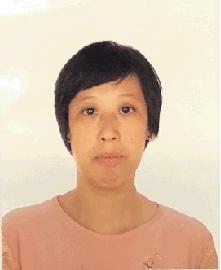Civil aviation authorities of Mainland, HK and Macao sign Co-operative Arrangement on Operational Evaluation of C919 Aircraft and MoU on Closer Co-operation on Type Certification
The Civil Aviation Administration of China (CAAC), the Civil Aviation Department of the Hong Kong Special Administrative Region (CAD) and the Civil Aviation Authority of the Macao Special Administrative Region (AACM) today (May 23) signed a Co-operative Arrangement on Operational Evaluation of C919 Aircraft and a Memorandum of Understanding on Closer Co-operation on Type Certification (MoU) in Hong Kong.
Witnessed by the Deputy Administrator of the CAAC, Mr Li Jian, and the Secretary for Transport and Housing, Mr Frank Chan Fan, the Arrangement and the MoU were signed by the Director General of the CAAC's Department of Aircraft Airworthiness Certification, Mr Xu Chaoqun; the Director General of the CAAC's Department of Flight Standard, Mr Hu Zhenjiang; the Director-General of the CAD, Mr Simon Li; and the President of the AACM, Mr Chan Weng-hong.
Under the Arrangement, the CAD and the AACM will send representatives to join the CAAC's evaluation boards and participate in the following four areas of operational evaluation of the C919 aircraft, China's homegrown large passenger plane:
(1) Flight crew qualification specification;
(2) Master minimum equipment list (i.e. all allowable defects of the aircraft and the corresponding procedures to uphold flight safety);
(3) Maintenance requirements; and
(4) Passenger cabin emergency evacuation demonstration.
As for the MoU, building upon the Co-operation Arrangements on Mutual Acceptance of Certificates of Airworthiness, Approvals of Design Change and Repair Design, and Parts Manufacturer Approvals signed by the three sides in 2009, it fosters further co-operation and enhances efficiency through reducing airlines' repetitive technical evaluations, tests and inspections in relation to certification application and the use of aircraft parts. Through strengthening information exchange and communication, the MoU will also enhance aviation safety and environmental protection.
Mr Chan said at the ceremony that the development of large civil aviation aircraft is a major decision and strategy of the country. As early as 2004, it had been listed as a significant project in the national long- and medium-term science and technology planning to promote economic, science and technology development in the country. The Hong Kong Special Administrative Region Government is deeply honoured to be invited by the CAAC to participate in this project and sincerely hopes that the three parties will, on the basis of a solid foundation for co-operation, achieve more fruitful results in the future and jointly contribute to the development of the civil aviation industry of the country.
Mr Li Jian noted that the Arrangement and the MoU are important measures to expand the scope of co-operation and deepen the level of co-operation on the basis of existing achievements. It is hoped that the CAD and the AACM could deepen exchanges with the Mainland, complement each other and develop together by bringing into full play their experience in participating in international exchanges, modern industry management, and adoption and practice of international standards. In the future, Hong Kong and Macao are welcome to continue to participate in the development of national civil aviation, and to promote Mainland, Hong Kong and Macao civil aviation efforts to achieve higher quality development through win-win co-operation, playing a more active role in the development of civil aviation in the country.
The CAD has extensive expertise and international experience in operational evaluation of aircraft. By participating in the C919 aircraft evaluation group, the CAD can, on the one hand, contribute to the development of the national aviation manufacturing industry. On the other hand, it can have a better understanding of the laws, procedures and standards governing China-made aircraft, so as to prepare for processing applications by airlines in future for the approval of using C919 aircraft in Hong Kong in accordance with the laws and regulations of Hong Kong.
On the same day, Mr Chan met with Mr Li Jian to exchange views on issues including the progress of the Three-runway System (3RS) at the Hong Kong International Airport and Pearl River Delta airspace. Mr Li Jian said that the CAAC will fully support the 3RS.
